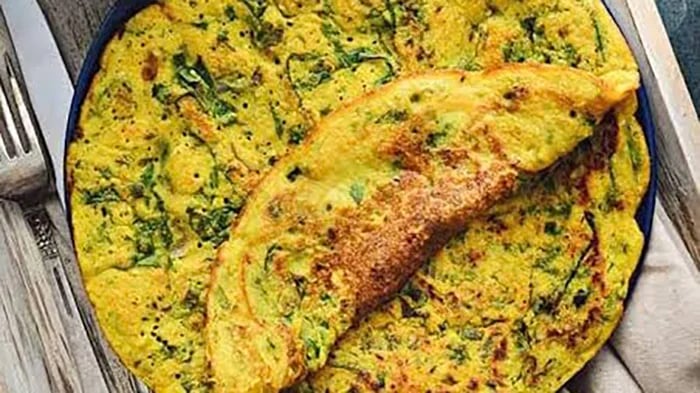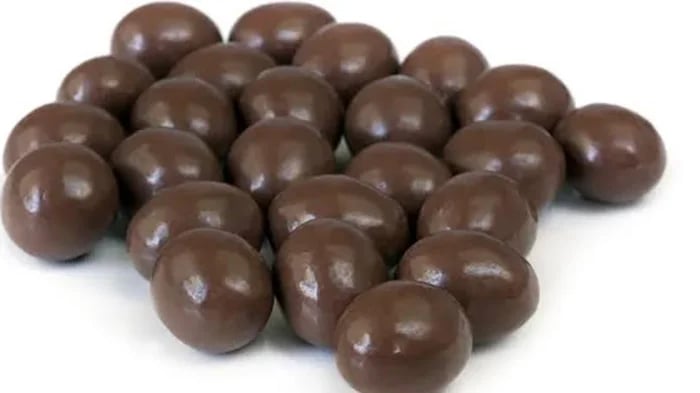- Chilla
- Hard-Boiled Egg-wiches
- Dark Chocolate
- Greek Yogurt and Pomegranates
- Dates and nuts
- Dark Chocolate Almonds
- Greek Yoghurt Fruit Parfait
Nowadays, few people eat a full English breakfast or a Bengali breakfast feast of luchi (puffed, golden flatbreads), dum aloo, and mishti (Bengali sweets). It is not due to a lack of love, but a lack of convenience as well as dietary complications. Studies have shown that distributing energy and nutrient intake across 4-5 occasions throughout the day, rather than eating 3 standard calorie-dense meals, favorably affects human health by alleviating potential digestive and metabolic overload.
Instead of having heavy meals, individuals may end up consuming healthier food groups like fruits and dairy in snacks, leading to lesser calorie intake and overall improvement of lifestyle and health. Due to this reason, children must be introduced to healthier snack alternatives instead of fast food at a younger age. Here are some energy-giving snacks to refuel your kids between meals.
Try These Energy-Giving Snacks For Kids
1. Chilla

Chilla is a savory pancake made from lentils or chickpea flour. Made with a combination of vegetables and spices according to taste, these fiber-rich delicious pancakes are crispy, salty, spicy, and low-calorie, making them guilt-free options for adults as well. Chilla is very easy to digest and can be fed to young school kids as well. Since lentils are full of folate, iron, and Vitamin B1, and have a tendency towards lowering bad cholesterol and blood pressure, these energy-rich carbs can be relished with ease between meals.
2. Hard-Boiled Egg-wiches
Hard-boiled eggs are a picnic staple as well as a favorite among doctors for their health benefits. Full of Omega-3 fatty acids, hard-boiled eggs satisfy the stomach while aiding metabolism, boosting immunity, improving eyesight, and reducing bloating. Enjoy hard-boiled egg-wiches by putting veggies and cheese on a toothpick, before cutting the egg in half and putting both halves on each end of the toothpick, to hold the egg-wich in place for a fun, filling snack.
3. Dark Chocolate
Dark chocolate helps reduce free radicals, lessen inflammation, improve blood flow and sugar levels, and enhance the mood of individuals. Since kids love chocolates and cannot give them up, it is better to feed them healthier treats like nuts, dried fruits, and dates coated in melted fine dark chocolate. Not only will that help them make smarter food choices when they grow up, but will also get them accustomed to mature tastes and textures without giving up on the last bit of comfort and chocolatey nostalgia.
4. Greek Yogurt and Pomegranates

Yogurt is a modern-day superfood. Rich in fiber with a low glycemic index and few calories, eating at least 2 cups of yogurt a week can lessen the risk of Diabetes Mellitus. Combine chilled Greek yogurt with some fresh pomegranates for a sweet, refreshing summer treat unlike any. Filling and rejuvenating, the combination is a perfect energy-giving snack to opt for in between major meals.
5. Dates and nuts
Dates have a high concentration of antioxidants, which not only improve brain and memory function but also help prevent microbial infections, promote gut health, and help maintain blood sugar levels. Being low in calories, dates are a healthy energy-boosting snack option that can be combined with nuts to create the perfect, nutrient-rich go-to food between meals. Being a rich source of protein, healthy fats, fibers, vitamins, and minerals, unless your kids are allergic to nuts, they cannot be missed from their daily diet.
Easy recipes of energy-boosting snacks for kids to eat between meals
1. Dark Chocolate Almonds

Ingredients
- 6 ounces of high-quality dark chocolate (50% or darker)
- 1-1 ½ cups of whole, raw almonds
- Salt
- Coarse sugar
Directions
- Line a baking sheet with parchment paper. Set aside.
- Melt the chocolate in a double broiler or the microwave. If using the microwave, melt the chocolate in 30-second installments, stirring after every installment, until completely smooth and melted.
- Dip the almonds, one by one, using a dipping tool or fork. Else they will stick together in unflattering clumps.
- Once dipped, gently tap against the bowl to get rid of excess chocolate and place it onto the prepared baking tray. Repeat with all the almonds.
- Sprinkle the laid almonds generously with salt and sugar before allowing them to completely set in the refrigerator. Store the almonds in the fridge for up to 4 weeks.
2. Greek Yoghurt Fruit Parfait
Ingredients
- 1 cup of Greek yogurt
- ½ cup of granola
- 6 sliced strawberries/ 1 medium-sized, peeled and separated pomegranate
- 9 blackberries/ 18 sliced grapes
- 3 tablespoons of honey
Directions
- Layer ⅓ of a mason jar or glass mug with Greek yogurt. Add a layer of granola to the top.
- Layer in 2 sliced strawberries/ ⅓ of pomegranate and 3 cut blackberries/ 6 sliced grapes.
- Add a tablespoon of honey on top. Repeat this layering till there is a perfect fruit parfait with three prominent strata. Serve and enjoy chilled.
Conclusion
Since snacking in-betweens meals has become a daily part of life, it is better to reap its benefits by resorting to healthy and energy-giving snacks. Kids develop a habit quickly and easily, only when they are used to new foods early. Check out these healthy energy-boosting healthy foods for kids when you are stuck for snack ideas and watch your little ones’ tastebuds develop and change.
Kaushiki Gangully is a content writing specialist with a passion for children's nutrition, education, and well-being. With more than five years of writing experience and a science-based background, she provides nuanced insights to help families raise happy, healthy kids. Kaushiki believes in making learning and healthy eating fun, empowering parents with practical, easy advice.
The views expressed are that of the expert alone.
The information provided in this content is for informational purposes only and should not be considered a substitute for professional medical advice, diagnosis, or treatment. Always seek the advice of your physician or another qualified healthcare provider before making any significant changes to your diet, exercise, or medication routines.










